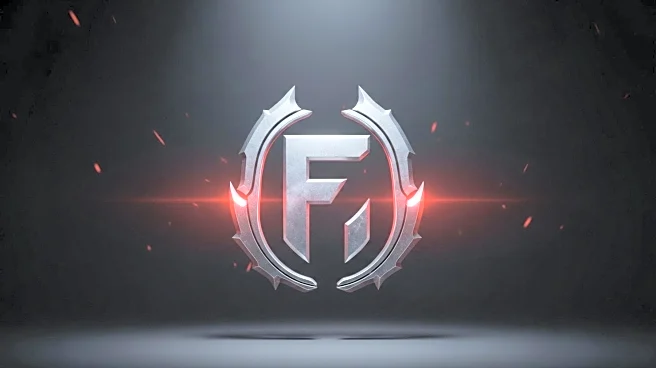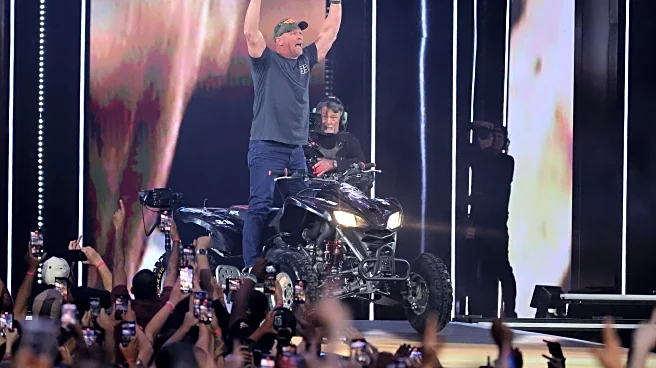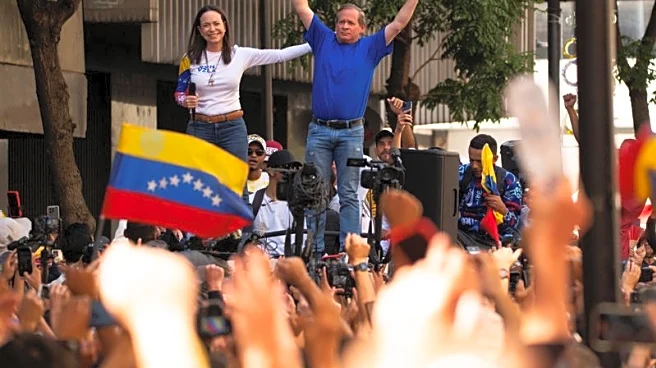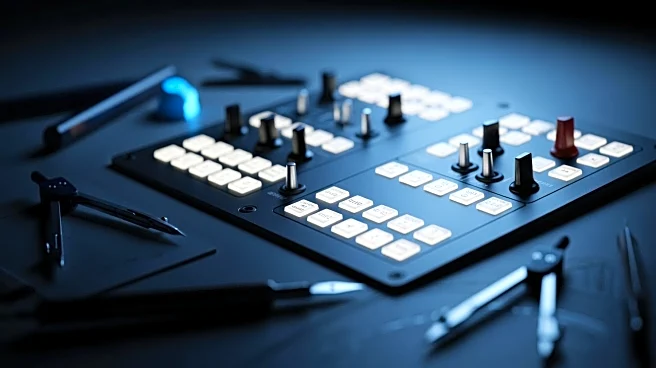What's Happening?
At the New York Comic Con, screenwriter Jeremy Slater announced that Mortal Kombat III is in development, following the success of Mortal Kombat II. The sequel to the 2021 movie is scheduled for release on May 16, 2026, after being delayed from its original fall 2025 date. Director Simon McQuoid attributed the delay to the movie's positive reception during test screenings, which prompted a strategic summer blockbuster release. The panel featured cast members Karl Urban, Adeline Rudolph, Tati Gabrielle, and Martyn Ford, who will reprise their roles alongside returning actors from the first movie.
Why It's Important?
The announcement of Mortal Kombat III underscores the franchise's enduring popularity and the confidence of New Line and Warner Bros. in its fanbase. The decision to delay Mortal Kombat II for a summer release suggests high expectations for its box office performance, potentially setting a precedent for future blockbuster scheduling. The continued expansion of the Mortal Kombat cinematic universe may influence other studios to invest in video game adaptations, recognizing their potential for commercial success and audience engagement.
What's Next?
With Mortal Kombat II set to release in 2026, fans can anticipate promotional activities and marketing campaigns leading up to its debut. The development of Mortal Kombat III will likely involve script refinement and casting decisions, as the filmmakers aim to build on the franchise's momentum. The success of these films could lead to further expansions, including spin-offs or additional sequels, solidifying Mortal Kombat's place in the cinematic landscape.
Beyond the Headlines
The Mortal Kombat franchise's growth in the film industry highlights the cultural impact of video games and their potential to transcend mediums. This trend may encourage more collaborations between gaming and film industries, fostering creative exchanges and innovative storytelling approaches. The adaptation of video games into movies also raises discussions about fidelity to source material and the balance between fan service and artistic interpretation.











